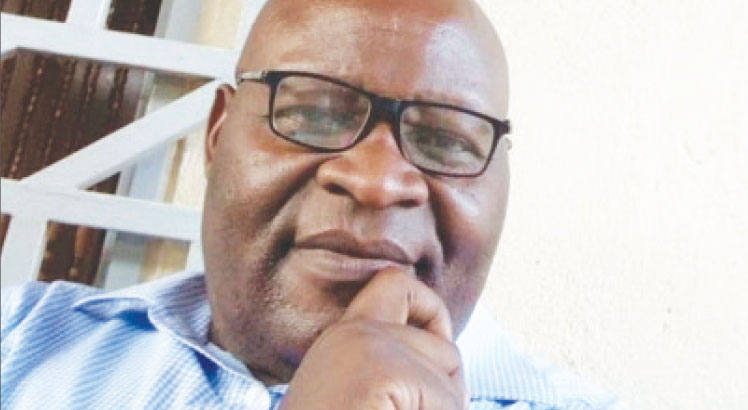‘Writers should be dealing with issues that affect our society’
Max Iphani is a renowned academic and non-fiction author who has contributed significantly to the country’s education system. Among other well-known books, he has edited Unsung Song: An anthology of Malawian writing in English, Exploring English, (Book 1 and II) and a Study Guide to Shakespeare’s Julius Caesar. He speaks to our correspondent HOWARD MLOZI on the situation of the country’s academic and non-fiction writing as well as personal journey. Excerpts:

Q
: As an author, how can you describe the situation of academic and non-fiction writing in the country?
A
: I don’t know how best to describe the situation as regards academic and non-fiction writing in this country. It would be better to say we are having mixed experiences. I must say that there are a lot of success stories from different directions. For example, the universities are doing great, particularly in the area of research in different domains.
Q
: Are you satisfied with the books being published so far?
A
: I have seen many quality textbooks for colleges, secondary and primary schools. However, there have been publications in all the education subsectors that leave a lot to be desired. Some publications contain serious errors in matters of fact as well as language. If you talk to secondary teachers and students as well as teacher trainers, they will tell you about these things. They will gladly cite many examples of such substandard works. I have also noted, much to my chagrin, a proliferation of pamphlets, self published by adventurous individuals trying their hand at writing in the hope of making some quick cash. So, I would say the situation is a mix of success and disappointment.
Q
: When did you start academic writing and how many books have you authored?
A
: Can I put my finger on the time I started writing? Not too sure really. Would it be the time I was at secondary. We used to write essays then. There was what we used to call a press club where anything went. Not really focused on breaking news. I would rather say that the writing became more serious when I was a member of the editorial board for the University of Malawi Students Union Magazine (UMSU Magazine). Along the way, came Malawi Institute of Education (MIE), while I was teaching English in secondary school. Around 1992, I started taking part in writing textbooks for English in primary school. Then somehow, someone noticed my editing abilities and interest. I edited several textbooks for MIE before I joined them in 1995 as curriculum specialist for English. The rest, as they say, is history.
Q
: What triggered the writing in you?
A
: What inspired me on this path? I would say seeing books lined up on shelves at Likuni Boys’ Secondary School was a powerful trigger force. And I read like a crazy beast. Any book on any subject was game, though I read mostly fiction from all over the world. I always wondered how the books came into being. Who wrote them? Was it some heavenly creatures? The desire to see the books written by myself grew and became unquenchable. I wrote, wrote and wrote. I tore one draft after another and went on and on and on.
Q
: How many books have you written so far?
A
: Honestly, I have lost count of the books I have contributed to which were published by MIE. I made efforts and contributed to various works as an author and as an editor. As an individual, I have been involved in writing, editing and translation works for Malawi government ministries as well as non-governmental organisations (NGOs). I have also published some works with private publishers such as Oxford University Press (eight textbook titles), Cambridge University Press (translation of 10 children stories into four Malawian languages), Dzuka Publishing Company (one title), Chanco Publishers (two titles).
Q
: Aside writing, what else do you do?
A
: I can’t see what else I can do apart from working on and with books. I am hopeless at business. I have failed big time trying to do any other business away from books. Unfortunately, a lot of challenges run in the path of academic and nonfiction writing.
Q
: What challenges are faced with academic writing in the country?
A
: One of the so many challenges is the general lack of interest in books that permeates the entire society in Malawi. Only a small proportion of the citizens have any reading tendencies which in turn means there is little or no market for books. However, writing in whatever form is not cheap. The situation, therefore, discourages many willing people from venturing into academic and non-fiction writing. Another challenge is the tendency of some writers who cut corners and churn out substandard pamphlets. Many of such pamphlets do not go through any neutral evaluation for quality assurance purposes and therefore may have harmful content. The list of challenges can be long. We could talk about lack of respect for contractual obligations by some publishers, NGOs and other agents who hire writers and editors to undertake different assignments on their behalf.
Q
: How best do you think these challenges can be resolved?
A
: I wish all our schools and colleges had libraries and special periods were allocated for using the libraries. Could we introduce reading and writing clubs at primary and secondary schools? I think that could help our children to strengthen their writing and reading skills. Writing competitions as well can go a long way. Why are they not common? What about the book selling business? How can we as a country promote it? How could government come in? Because we definitely need a bookshop in every little town in this country, not just Blantyre, Lilongwe and Mzuzu. There is also a union responsible for academic and nonfiction writing in the name of Malawi Union of Academic and Non-Fiction Authors. This union whose current president is Ron Muphuwa can help a lot in addressing the challenges facing not just academic and nonfiction writing, but all writing.
Q
: What do you think is the importance of writing about local issues/stories that relate to us?
A
: Writing is an effective way of generating or brainstorming ideas/solutions for dealing with almost any challenge a society faces. It is, therefore, important as academic and nonfiction writers in Malawi, we should be dealing with issues that affect our society. Only then can writers contribute to solving the numerous challenges that confront our society.





